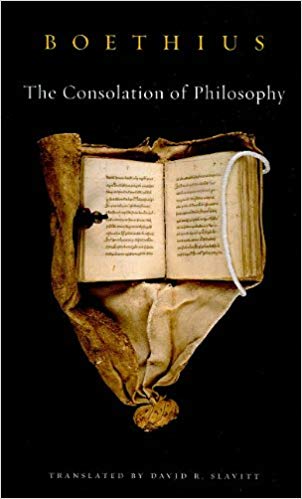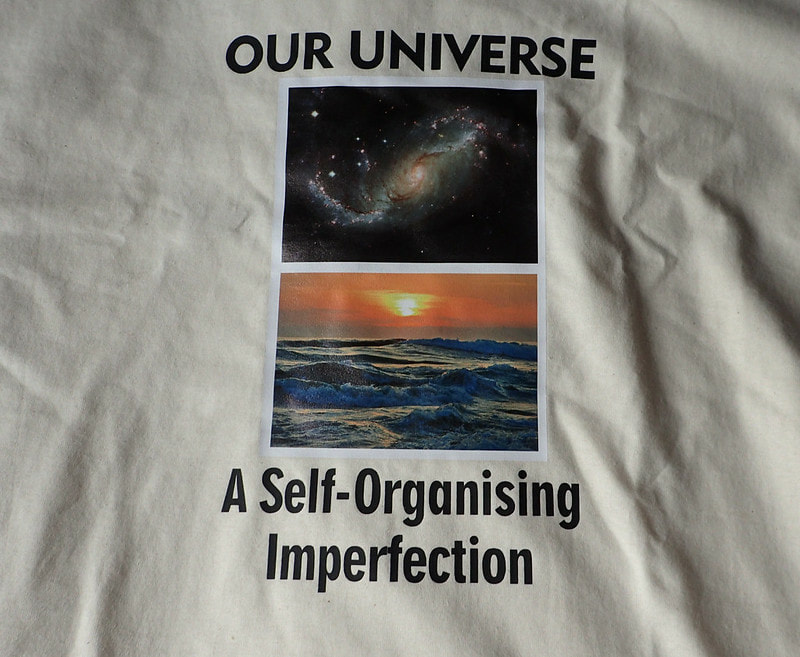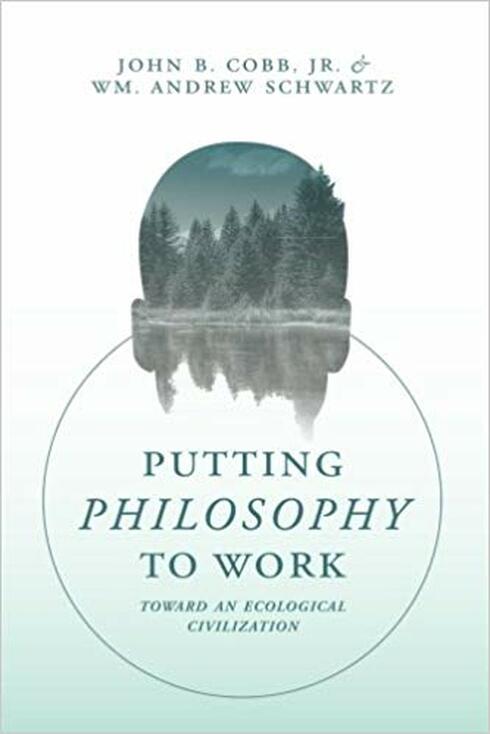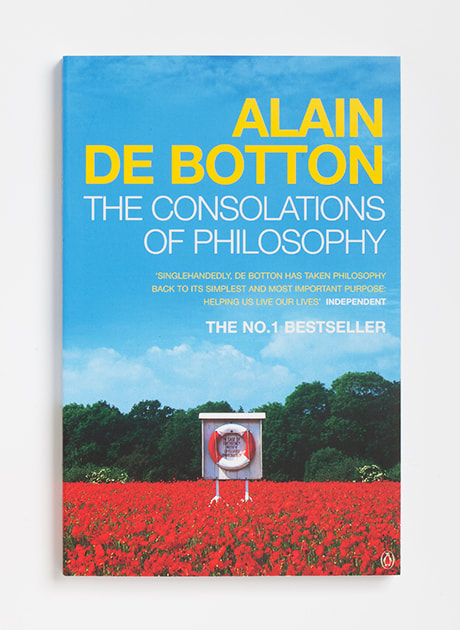Should I Major in Philosophy?
|
Dear Philosophy Professor at my University,
I'm thinking about majoring in philosophy. I learned recently that one of the most influential works of late antiquity in the West was called The Consolation of Philosophy, written by Boethius. And recently I've been reading a book by a British philosopher, Alain de Botton, called The Consolations of Philosophy. He shows how the philosophies of Nietzsche, Montaigne, Schopenhauer, Socrates, Epicurus, and Seneca can help us deal with questions of suffering, love, anger, sex, love, and self-confidence. I wish he had dealt with philosophies in Asia and Africa and the Americas; he was very Eurocentric. Still, I liked the way he showed the relevance of philosophy to everyday life. And then I started listening to The Consolations of Philosophy by Max Richter. Have you heard it? It's really so beautiful. I thought to myself: What if philosophy could be presented through music, even apart from lyrics. Might the moods of music be "philosophical" in their ways? It made me want to take a course in philosophical aesthetics. I'd like to consider non-verbal philosophies, too. But let me get to the point. True to the original meaning of the word philosophy (love of wisdom), I guess I am a wisdom seeker, for good or ill; and that's why I'm thinking about majoring in philosophy. Before I make my choice, I'd like to ask you you about your own views. In your opinion, does philosophy have any consolations? What are they? Wisdom Seeker * Dear Wisdom Seeker, Yes, in my view, the practice of philosophy has nine satisfying outcomes -- nine consolations -- and I will list them below. But please note that one of the most important consolations is not simply individualistic. Some philosophies --those influenced by the philosophy of Alfred North Whitehead, for example -- explicitly seek to help change the world for the better, if liberated from the isolation of the classroom and the confines of the philosophy journal. The philosophy of Marx sought the same. They are consoling not only to individuals but to societies and to the earth. These world-changing philosophies are driven by a passion for understanding, of course, and there aren't enough of them in our time. That's why I myself appreciate the Whiteheadian thinkers, even as I am not one of them. Here your point about music rings true. These philosophies must be communicated in aesthetically persuasive ways. Only then can they become lures for feeling and understanding, catalysts for social transformation. Only then can they do their work: helping the world become more just and sustainable, open and humane, wise and generous, creative and compassionate. Which is a ninth consolation, and in our time one of the most important, So, yes, I think you can benefit from majoring in philosophy if you seek any of these consolation, and I think that, for us today, the ninth is especially important. Come join us. I'll be your advisor. Philosophy Professor at Your University |
Philosophy's Questions-- from the Department of Philosophy at Brown University
"Philosophy is the systematic and critical study of fundamental questions that arise both in everyday life and through the practice of other disciplines. Some of these questions concern the nature of reality: Is there an external world? What is the relationship between the physical and the mental? Does God exist? Others concern our nature as rational, purposive, and social beings: Do we act freely? Where do our moral obligations come from? How do we construct just political states? Others concern the nature and extent of our knowledge: What is it to know something rather than merely believe it? Does all of our knowledge come from sensory experience? Are there limits to our knowledge? And still others concern the foundations and implications of other disciplines: What is a scientific explanation? What sort of knowledge of the world does science provide? Do scientific theories, such as evolutionary theory, or quantum mechanics, compel us to modify our basic philosophical understanding of, and approach to, reality? What makes an object a work of art? Are aesthetic value judgments objective? And so on..." (Philosophy What and Why, Brown University Catalog) Consolations Six and Seven: Philosophy as a Spiritual PracticeFor the religiously-minded, some of the consolations can be very important religiously. Consider, for example, the pleasures of skepticism and independent thinking. I have seen these two pleasures in many a college undergraduate who, having grown up in a religiously structured environment, discovers that it is alright to doubt things and to think freely, despite what she learned from her Sunday School teachers. The act of philosophizing becomes, for her, a spiritual practice of sorts, almost like prayer, except addressed to truth, not God. It is spiritual in the sense that her own spirit feels free, or liberated, in the very activity and it is prayerful in that it is a reaching out into something more – a question – that pulls at her, beckoning her.
Additionally and importantly, skepticism itself can be appreciated as a form of apophatic theology: that is, the mental activity of peeling away illusions (including illusory convictions) which have become idols in the mind and imagination. Boethius: The Consolations of
|
Nine Consolations of Philosophy
In professional departments of Philosophy some of these consolations will seem much more important than others, and some professional philosophers might declare that some have no place in philosophy at all. For example, some might reduce the worthy aims of philosophy to puzzle-solving, skepticism, good argumentation, and free thinking. But I see things differently. I see all as important to philosophy and as, in their own way, consoling. My impression is that, in much contemporary philosophy, the first seven forms consolations are emphasizes at the expense of the last three. The Ninth Consolation"Change your thinking; change the world . . .Philosophy has gotten a bad rap. As an academic discipline, it is mocked as irrelevant to modern society. But bias against philosophy doesn’t mean we don’t have one. We all have a basic worldview. This is as true for whole civilizations as for individuals, a point driven home daily as the dire consequences of the Western worldview—the most urgent being climate change—are now inescapable. But if Western philosophy has brought us to this razor’s edge, would another one be any better? The twelve contributors to this book argue, yes: the process philosophy of Alfred North Whitehead.But what is process philosophy? This book is designed not only to answer the what, but also to demonstrate the how and why—how process philosophy provides a practical answer to so many of the potentially catastrophic issues now facing us, and why it is so urgently needed."
Table of ContentsPreface. John B. Cobb, Jr.
What can trigger transformation? Catherine Keller Philosophy is not just for Philosophers. William Andrew Schwartz Have you ever wondered what it's like to be a chimpanzee? Nancy Howell Mind Versus Matter. Philip Clayton What can we Hope For? Sandra Lubarsky World Loyalty. Mary Elizabeth Moore Spirituality. Jay McDaniel |
The Seventh Consolation:
Philosophy as offering Wisdom for Living
|
About the Book (The Publisher)"In Ancient Greece or Rome, philosophers were seen as natural authorities on the most pressing questions. However, since then, the idea of finding wisdom from philosophy has come to seem bizarre. Enter a university department today and ask to study wisdom, and you will politely but firmly be shown the door. The Consolations of Philosophy sets out to refute the notion that good philosophy must be irrelevant and gathers together six great philosophers who were convinced of the power of philosophical insight to work a practical effect on our lives. Negative ReviewsThe critical reception for Consolations has been primarily positive. It received glowing praise in, among other publications, The New York Review of Books, The Times, The Spectator, The Sunday Telegraph, The Sunday Times, The Irish Times, The Literary Review, and The Mail on Sunday.[1] |












